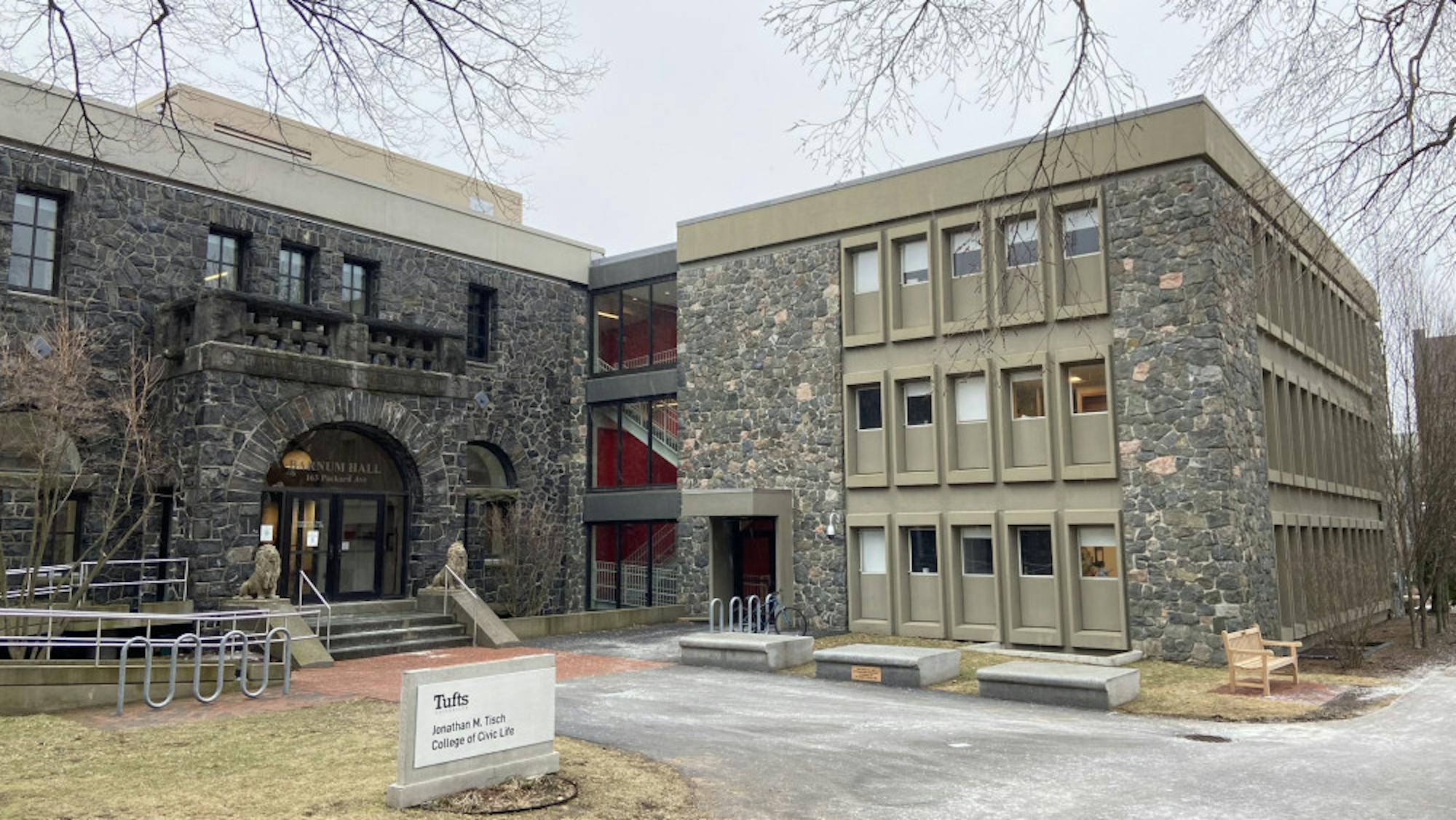Tisch College’s Susan and Alan Solomont Distinguished Speaker Series began on Feb. 9 with a Civic Life Lunch with writer, activist and Tufts alumna Sabrina Cartan (A'15). Titled “Activists, Assemble!,” the talk focused on how pop culture fandoms can integrate into spaces for activism and social change.
Jessica Byrnes, communications program manager at Tisch College, shared her insights about the thought process behind the Speaker Series.
“A big goal of this series is to bring civic leaders and activists to campus to engage with the Tufts community, to share their expertise … and to inspire action,” Byrnes said. “One of Tisch College’s goals is building robust and inclusive democracy for a multiracial society. I think a big part of that is helping students understand that there are many pathways to civic participation and one way to do that is to bring changemakers to campus, who are examples of how to be a civic activist or a citizen activist, no matter what you study or what you go on to do in life.”
The theme for this semester’s speaker series is citizen activism.
“What we’re excited to explore in the spring is how to be an activist, an individual activist and also as part of a collective movement in whatever field or industry you’re a part of,” Byrnes said.
She added that Cartan’s impactful, joyful fan activism was a perfect way to start the series, as fun is often excluded from conversations about creating change.
“[Cartan] is a Tufts alum, and she was a former Tisch summer fellow,” Byrnes said. “Hearing about what she’s doing, particularly around fan activism, felt like a really fun and joyful way to highlight how someone is making a difference.”
In her discussion with Jennifer McAndrew, director of communications, strategy and planning at Tisch College, Cartan began by defining “fan activism” and drew on her own experiences to convey the potential of this relatively new field.
“There’s this assumption that fandom is synonymous with consumerism, which it can be. A fan can be someone who goes to see the latest Marvel movie or “Star Wars” movie and maybe they buy a t-shirt or lightsaber or something and that’s the extent to which they are a fan,” Cartan said.“To me, fandom is a spectrum from that basic level of consumerism all the way up to creativity and creating transformative work.”
For Cartan, fan activism is tapping into the emotion of stories to enact social change, which can range from disaster relief work to political action. She works with Fandom Forward, an international nonprofit, to make this activism accessible through pop culture.
“Becoming a part of this network and making all of these friends [in Fandom Forward] who would teach me so much about all of the different ways that one could organize sustainably — I think the question of mental health and burnout is a really big problem for activists,” Cartan said. “You have to make it sustainable through pleasure.”
Cartan spoke about examples of fan activism, citing the impact of the tv show “Our Flag Means Death” (2022–) that inspired Fandom Forward to organize a campaign called “Our Flag Means Queer Rights,” which centered conversations on topics like LGBTQ+ rights and concerns within the community.
“We had Vico Ortiz, who's one of the cast members of the show, join to do a conversation with us.” Cartan said. “The most important thing was that in between all of these different talks and content programming there were these action steps that people took to engage in fan activism. I believe it was something like 400 fans [who] came together to take 1,200 actions of making calls to their elected officials or writing letters to legislative offices to oppose anti-LGBTQ legislation.”
Cartan later answered questions from the audience, which touched on subjects including potential radicalization within online video game communities and the impact of controversial pop culture figures on activism. She also discussed the importance of interpretation in pop culture and how it can open conversations on representation and diversity within a fandom.
Byrnes emphasized that the aim of lectures like this is to create experiences that motivate members of the Tufts community to explore new pathways to community engagement.
“We're hoping that we can create experiences for students to come together as a community to foster relationships, to feel inspired to take action in whatever way they feel that they can be a part of a solution and to learn something that they hadn't known before,” Byrnes said.






